The Benefits of Plant-Based Diets: Exploring Vegetarian and Vegan Options
Hey there, my young and curious friends of 2024! It’s your nutrition buddy from the past, Nita Sharda, here to take you on an exciting and delicious journey into the world of plant-based diets – the superheroes of healthy and sustainable eating!
Now, I know that the words “plant-based” and “vegan” might sound a little intimidating or even boring at first, like something only grown-ups talk about. But trust me, once you discover how tasty, fun, and good for you (and the planet!) plant-based eating can be, you’ll never look at fruits and veggies the same way again!
So, are you ready to explore the amazing benefits of plant-based diets and learn about some yummy vegetarian and vegan options? Let’s dive in!
What is a Plant-Based Diet?
First things first, let’s talk about what we mean when we say “plant-based diet.” A plant-based diet is a way of eating that focuses on foods that come from plants, like:
- Fruits and vegetables
- Whole grains like rice, quinoa, and oats
- Legumes like beans, lentils, and peas
- Nuts and seeds
- Plant-based oils like olive oil and coconut oil
In other words, a plant-based diet is all about filling your plate with colorful, nutritious, and delicious foods that grow from the earth, rather than foods that come from animals, like meat, dairy, and eggs.
Types of Plant-Based Diets
There are a few different types of plant-based diets that you might hear about:
Vegetarian Diet
A vegetarian diet is a type of plant-based diet that includes fruits, veggies, grains, legumes, nuts, and seeds, but excludes meat, fish, and poultry. Some vegetarians also choose to include dairy products and eggs in their diets, while others avoid them.
Vegan Diet
A vegan diet is a type of plant-based diet that excludes all animal products, including meat, fish, poultry, dairy, eggs, and even honey. Vegans rely solely on plant-based foods for all of their nutrition needs.
Flexitarian Diet
A flexitarian diet is a type of plant-based diet that emphasizes plant-based foods, but also includes small amounts of meat, fish, or dairy on occasion. This can be a good option for people who want to eat more plants but aren’t ready to give up animal products entirely.
No matter which type of plant-based diet you choose, the key is to focus on whole, minimally processed foods that are packed with nutrients and flavor.
The Benefits of Plant-Based Diets
So, why are plant-based diets so amazing for our health and the health of the planet? Let’s take a closer look at some of the incredible benefits:
Good for Your Body
One of the biggest benefits of plant-based diets is that they are incredibly good for your physical health. Studies have shown that people who eat a diet rich in fruits, veggies, whole grains, and legumes have lower rates of:
- Heart disease
- High blood pressure
- Type 2 diabetes
- Certain types of cancer
- Obesity
This is because plant-based foods are packed with important nutrients like fiber, vitamins, minerals, and antioxidants, which help keep our bodies strong, healthy, and disease-free.
Good for Your Brain
Eating a diet rich in plant-based foods is also incredibly good for your brain health. Studies have shown that people who eat lots of fruits, veggies, and whole grains have better memory, focus, and overall brain function than those who eat a diet high in processed and animal-based foods.
This is because plant-based foods are rich in nutrients like omega-3 fatty acids, vitamin E, and flavonoids, which are important for healthy brain development and function.
Good for the Planet
In addition to being good for our bodies and brains, plant-based diets are also incredibly good for the planet. Animal agriculture is a major contributor to greenhouse gas emissions, deforestation, and water pollution, while plant-based foods have a much lower environmental impact.
By choosing to eat more plants and less animal products, we can help reduce our carbon footprint, conserve natural resources, and protect the planet for future generations.
Good for Animals
Finally, choosing a plant-based diet is also a compassionate choice for animals. Many animals raised for food live in crowded, stressful conditions and experience fear and pain throughout their lives.
By choosing to eat more plant-based foods and less animal products, we can help reduce the demand for animal agriculture and promote more humane and ethical treatment of animals.
Getting Started with Plant-Based Eating
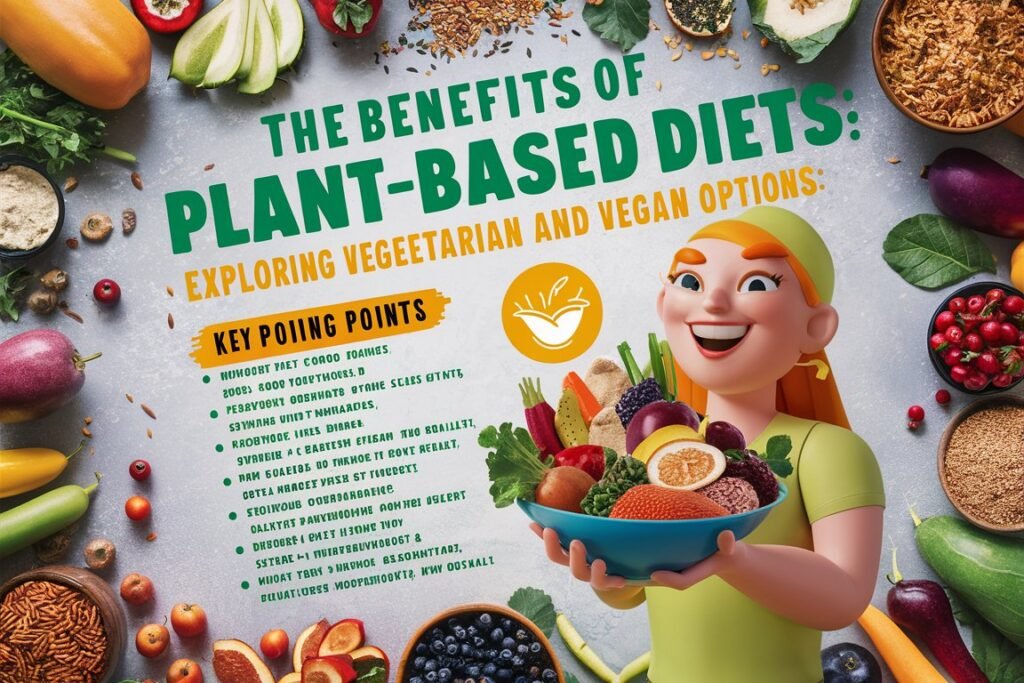
Okay, so now that we know why plant-based diets are so amazing, let’s talk about how to get started with incorporating more plant-based foods into your diet!
Start Small
If you’re new to plant-based eating, it’s okay to start small and make gradual changes over time. You don’t have to go vegan overnight – instead, try incorporating one or two plant-based meals or snacks into your diet each week, and slowly increase from there.
Experiment with New Foods
One of the best parts of plant-based eating is discovering all the delicious and diverse foods that the plant kingdom has to offer! Don’t be afraid to try new fruits, veggies, grains, and legumes that you’ve never had before – you might just find your new favorite food.
Get Creative in the Kitchen
Eating a plant-based diet doesn’t have to be boring or bland – in fact, it can be an opportunity to get creative and have fun in the kitchen! Try experimenting with new recipes, flavor combinations, and cooking techniques to keep things interesting and delicious.
Focus on Whole Foods
When choosing plant-based foods, try to focus on whole, minimally processed options whenever possible. This means choosing foods like fresh fruits and veggies, whole grains, and legumes, rather than processed vegan junk food like chips and cookies.
Don’t Forget About Protein
One common concern about plant-based diets is getting enough protein, but don’t worry – there are plenty of delicious and nutritious plant-based protein sources out there! Some great options include:
- Legumes like beans, lentils, and peas
- Nuts and seeds like almonds, chia seeds, and hemp seeds
- Whole grains like quinoa and oats
- Soy products like tofu and tempeh
By including a variety of these protein-rich plant foods in your diet, you can easily meet your daily protein needs without relying on animal products.
Plant-Based Meal and Snack Ideas
Okay, so now that we know the basics of plant-based eating, let’s talk about some fun and tasty meal and snack ideas that kids can enjoy!
Breakfast Ideas
- Overnight oats with plant-based milk, fresh fruit, and nut butter
- Whole grain toast with avocado and everything bagel seasoning
- Tofu scramble with veggies and salsa
- Smoothie bowl with frozen banana, spinach, and plant-based protein powder
- Chia seed pudding with coconut milk and berries
Lunch Ideas
- Hummus and veggie wrap with whole grain tortilla
- Quinoa salad with black beans, corn, and cilantro lime dressing
- Peanut butter and banana sandwich on whole grain bread
- Veggie-packed minestrone soup with whole grain crackers
- Baked sweet potato with black beans, salsa, and guacamole
Snack Ideas
- Fresh fruit with almond butter
- Carrot sticks and cucumber slices with hummus
- Popcorn with nutritional yeast and smoked paprika
- Roasted chickpeas with olive oil and sea salt
- Apple slices with sunflower seed butter
Dinner Ideas
- Spaghetti with lentil “meatballs” and marinara sauce
- Stir-fry with tofu, veggies, and brown rice
- Black bean tacos with lettuce, tomato, and avocado
- Veggie burger with sweet potato fries and a side salad
- Stuffed bell peppers with quinoa, black beans, and salsa
By incorporating these delicious and nutritious plant-based meals and snacks into your diet, you can enjoy all the amazing benefits of plant-based eating while still having fun and satisfying your taste buds!
Overcoming Challenges and Misconceptions
Of course, like any new way of eating, plant-based diets can come with their own set of challenges and misconceptions. Let’s talk about a few common ones and how to overcome them:
“Plant-based diets are boring and bland.”




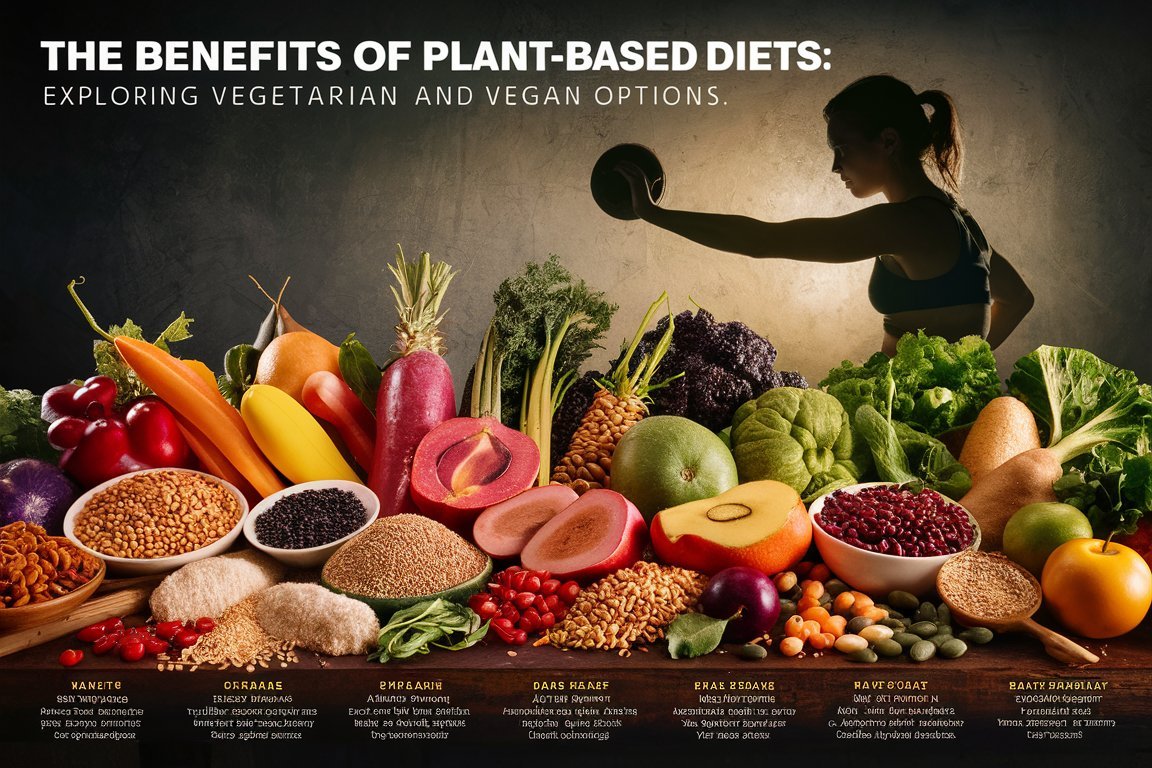
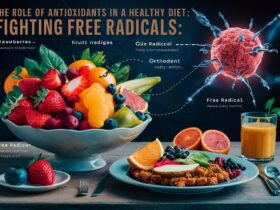



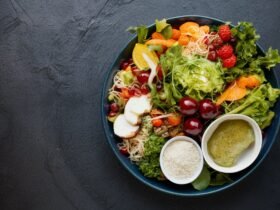
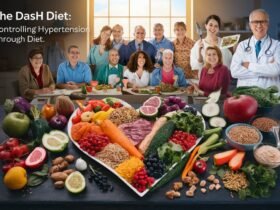
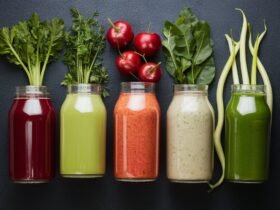
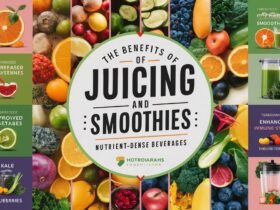
1 Comment